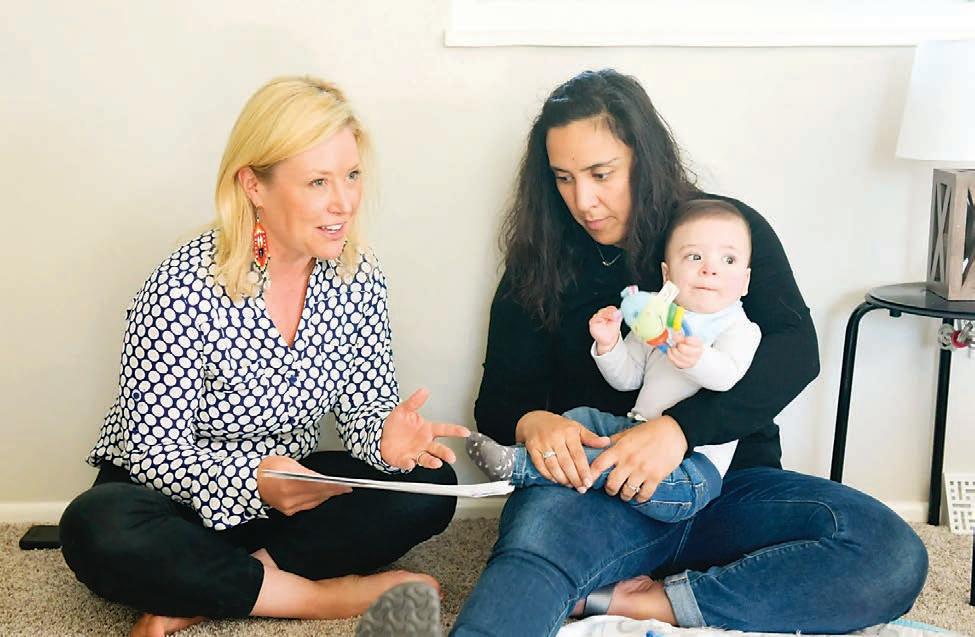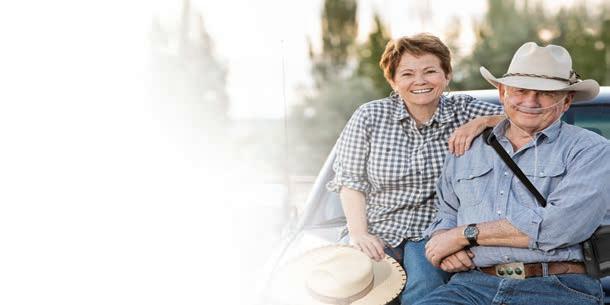
3 minute read
FREEDOM. TO BE YOU.
the federal poverty limit. at would be less than about $49,720 for a family of three this year.
Tritten said Parent Possible was contacted in December to discuss a possible donation with an anonymous organization. In March, Scott’s foundation, Yield Giving, called to say it would donate $1 million to Parent Possible.
In the 15-minute conversation, they told her, “good luck with your organization and the important work you’re doing,” she said.
Miller said.
In her mentorship, Miller channels another one of her inspirations; Bonnie Raitt.
“I want to be like Bonnie (Raitt),” Miller said. “She resurrected Ruth Brown when (Brown’s) record company dropper her. And Bonnie started bringing her on tour.
at’s what I want to be to these young kids. ese kids call me, ‘Miss Miller, would you come mentor my band?’
“And I say, ‘Well, I’ve got to come see you rst, make sure you’re doing something cool,’” Miller continued.
One of Miller’s protégés, Chad Wooten — the frontman of country act 20 Hands High — said Miller discovered him in a karaoke bar in Morrison. Miller told Wooten to form a band and before long, he had taken her advice.
Tritten said the foundation will let Parent Possible use the funds for whatever is most important.
Scott, who as of last year was the fth richest woman in the United States, has given away more than $14 billion since 2019. She has a 4% stake in Amazon as part of her divorce settlement with Amazon founder Je Bezos. She has made waves in the world of philanthropy by making large gifts, including to schools and education nonpro ts, with no strings attached. Last year,
“She said, “A voice like yours needs to be on stage,’” Wooten recalled. “She’s a sel ess shining light who has been enough to mentor me, as I had zero experience with a band, playing out live, booking … She loves to see others succeed... everyone in every music scene and genre could learn from her.”
Miller said that she especially hopes to mentor young female musicians, who she believes are often undervalued in the music community.
“We get the short end of the stick,” she said. “... ey play, they sing, they write. I didn’t know how to do any of that. Nobody ever said, ‘You can write your own song.’ Nobody ever said, ‘You can start your own band.’ I started my band because I was tired of getting ripped o .”
‘If I die on stage, I’ll die happy’ e Parent Possibledonation was announced this week. e app, called Vroom, was created with funding from the Bezos Family Foundation. It messages parents with suggestions for activities to do with their children every day. e home-visiting programs teach child development, how to promote the social and emotional development of young children and how to prepare 2- to 5-year-old children for preschool and kindergarten.
While she doesn’t have any regrets from her career, one area that brings Miller sadness is that she — one of Colorado’s foremost Black artist — has never played for a predominantly Black crowd.
“I love my audiences because they don’t see me as being Black, they just see me as the band they came out to see,” Miller said. “ e only thing that disappoints me — I have never had a Black audience. I can usually count Black people on one hand at my shows.
Scott gave $2.5 million to a Colorado Springs charter school.
Parent Possible provides 4,000 families with in-home visiting services and an additional 20,000 families in Colorado with virtual programs, like early learning education software and an app with learning tools and parenting help.
Parent Possible provides some of its programs through partnerships with schools, family resource centers, departments of human services, and nonpro ts. Its services are free of charge to Colorado families.

Parent Possible is still mapping out how to best use Scott’s donation to help the families it serves.
Tritten hopes to advance the group’s work and accomplish more than they had previously thought possible.
Chalkbeat is a nonpro t news site covering educational change in public schools.
“And I can go see a Black band, and they’ll have all these people there, and they’ll know me — but they don’t come to my shows,” Miller continued. “I don’t know why. But I had to let go. Because the people that come to see me want to be there, and we have a ball. I don’t worry about it anymore, but it does hurt. It’ll never stop hurting.”
Miller recently turned 70 but has no plans to slow down.
“I don’t know how to give it up. In all honesty, if I die on stage, I’ll die happy,” Miller said. “Everyone I love and respect were still working when they died. From Ella Fitzgerald to Aretha Franklin. ey were all working when they passed away. And you can’t beat that.”
All in all, Miller’s career has taken her around the globe, bringing the fth of seven children from Louisville, Kentucky to stages massive and modest. e most important accomplishment from her career, she says, is that she was able to give her children and grandchildren opportunities that she was never a orded.
“My job allowed me to give my boys things that I never had,” Miller said. “I have been to places that I dreamed of, and I got to see them because I was there singing. I woke up one morning and looked out the bathroom window at Mount Fuji. It was unbelievable — there was snow on it!”








